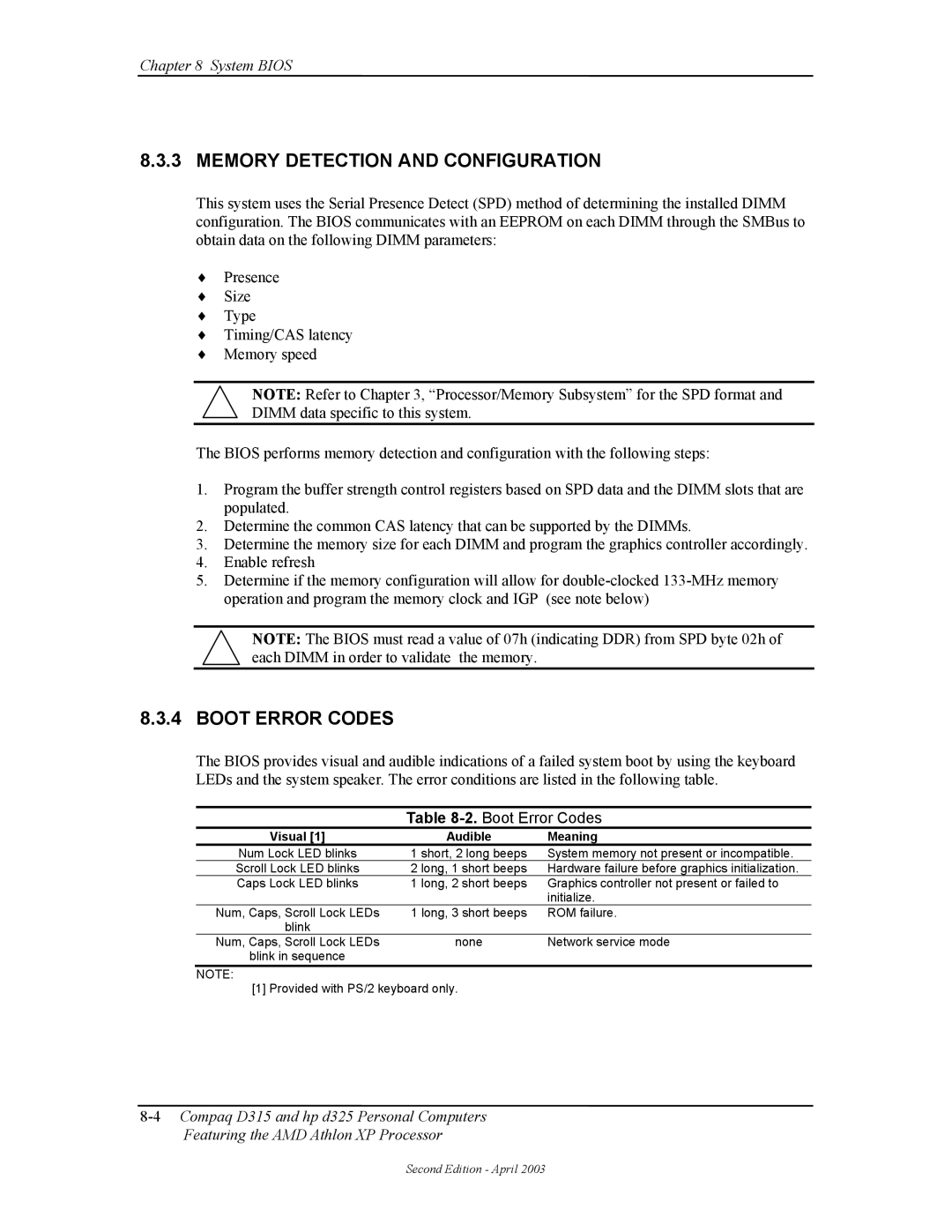
Chapter 8 System BIOS
8.3.3 MEMORY DETECTION AND CONFIGURATION
This system uses the Serial Presence Detect (SPD) method of determining the installed DIMM configuration. The BIOS communicates with an EEPROM on each DIMM through the SMBus to obtain data on the following DIMM parameters:
♦Presence
♦Size
♦Type
♦Timing/CAS latency
♦Memory speed
NOTE: Refer to Chapter 3, “Processor/Memory Subsystem” for the SPD format and DIMM data specific to this system.
The BIOS performs memory detection and configuration with the following steps:
1.Program the buffer strength control registers based on SPD data and the DIMM slots that are populated.
2.Determine the common CAS latency that can be supported by the DIMMs.
3.Determine the memory size for each DIMM and program the graphics controller accordingly.
4.Enable refresh
5.Determine if the memory configuration will allow for
NOTE: The BIOS must read a value of 07h (indicating DDR) from SPD byte 02h of each DIMM in order to validate the memory.
8.3.4 BOOT ERROR CODES
The BIOS provides visual and audible indications of a failed system boot by using the keyboard LEDs and the system speaker. The error conditions are listed in the following table.
Table 8-2. Boot Error Codes
Visual [1] | Audible | Meaning |
Num Lock LED blinks | 1 short, 2 long beeps | System memory not present or incompatible. |
Scroll Lock LED blinks | 2 long, 1 short beeps | Hardware failure before graphics initialization. |
Caps Lock LED blinks | 1 long, 2 short beeps | Graphics controller not present or failed to |
|
| initialize. |
Num, Caps, Scroll Lock LEDs | 1 long, 3 short beeps | ROM failure. |
blink |
|
|
Num, Caps, Scroll Lock LEDs | none | Network service mode |
blink in sequence |
|
|
NOTE:
[1] Provided with PS/2 keyboard only.
Featuring the AMD Athlon XP Processor
Second Edition - April 2003
